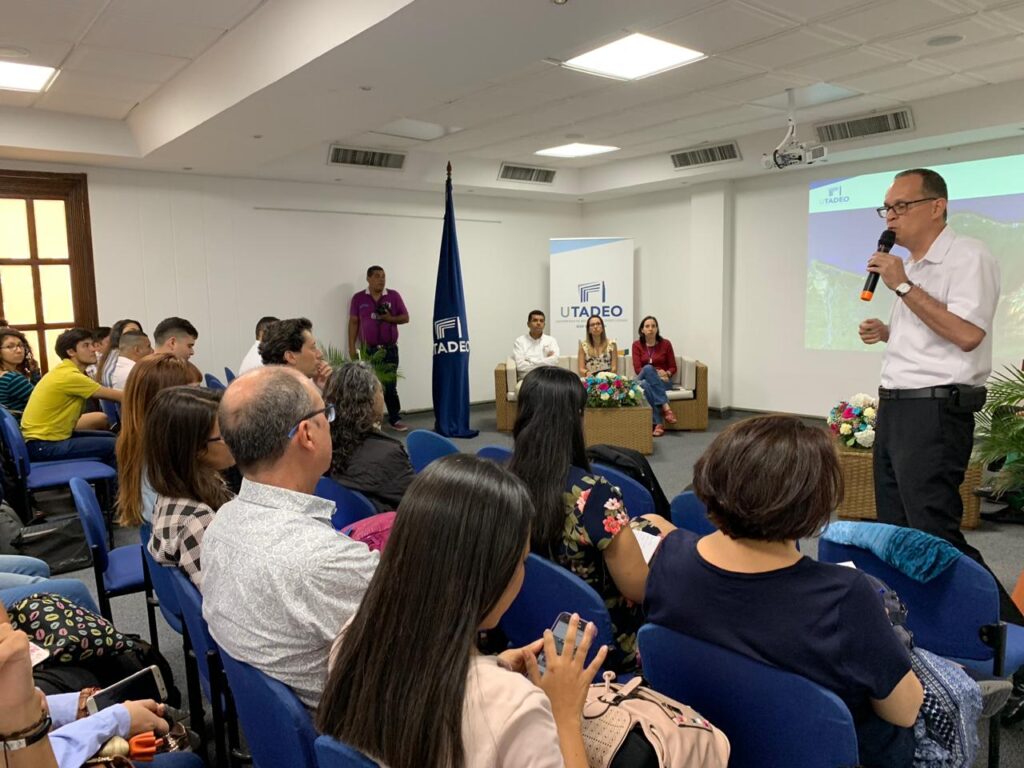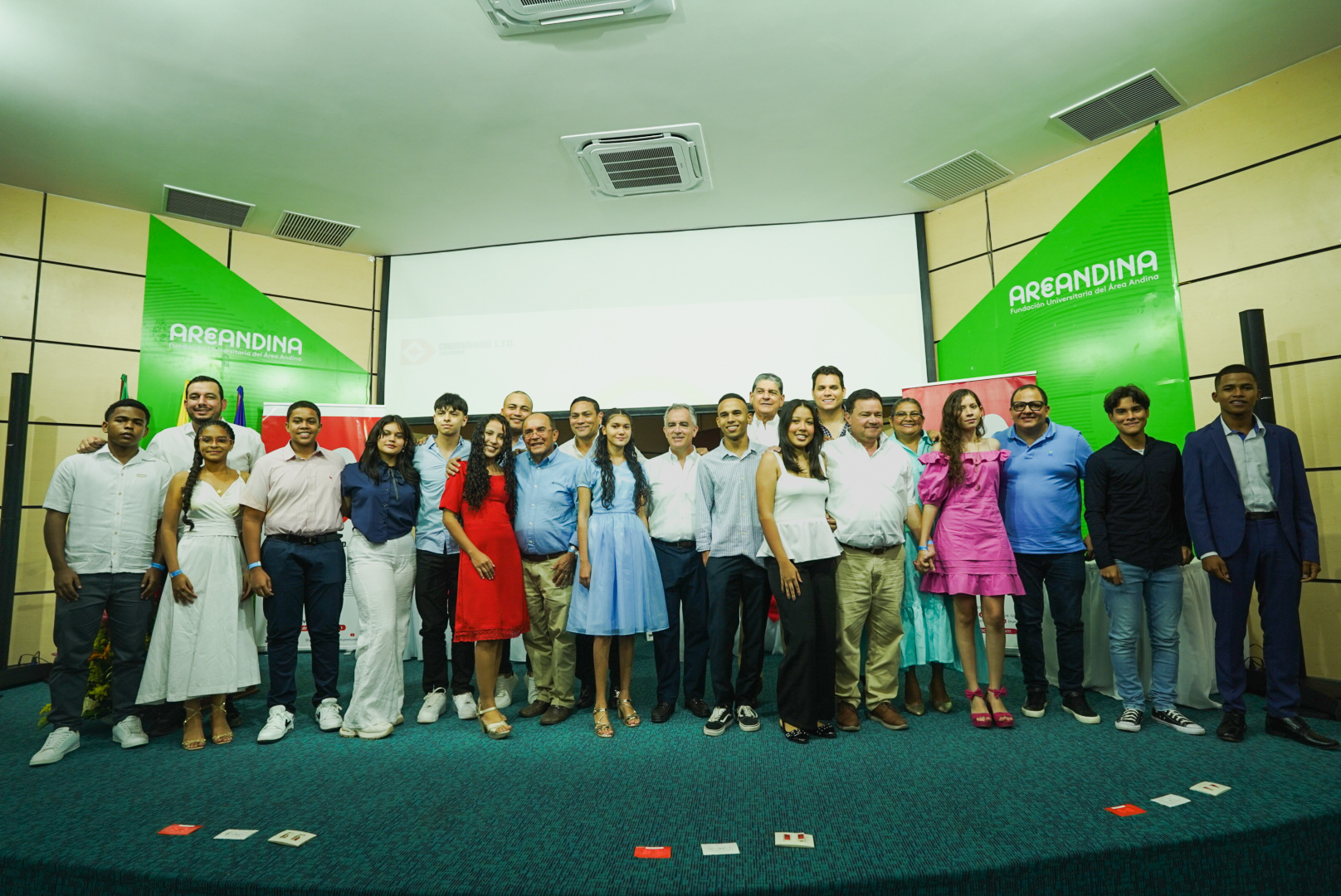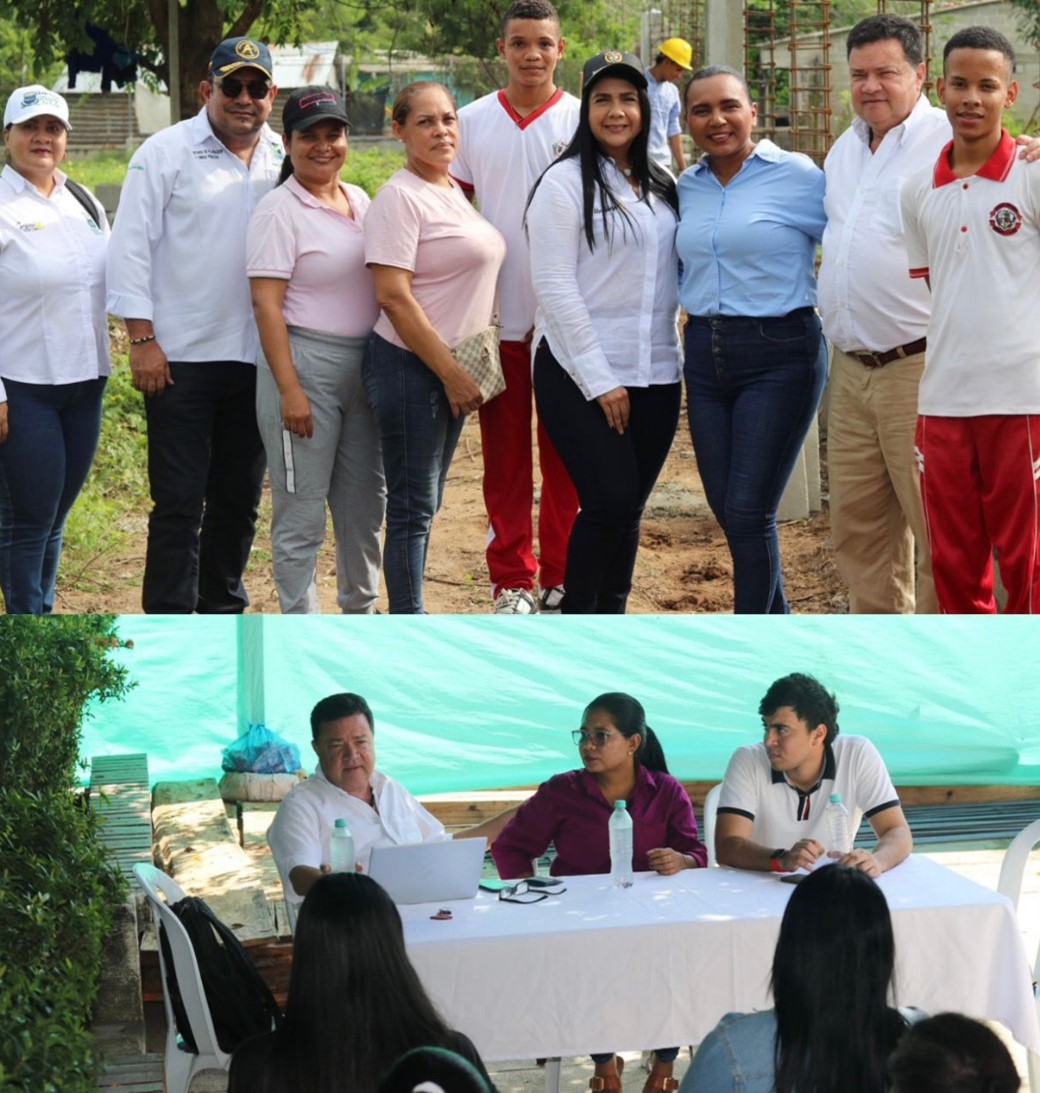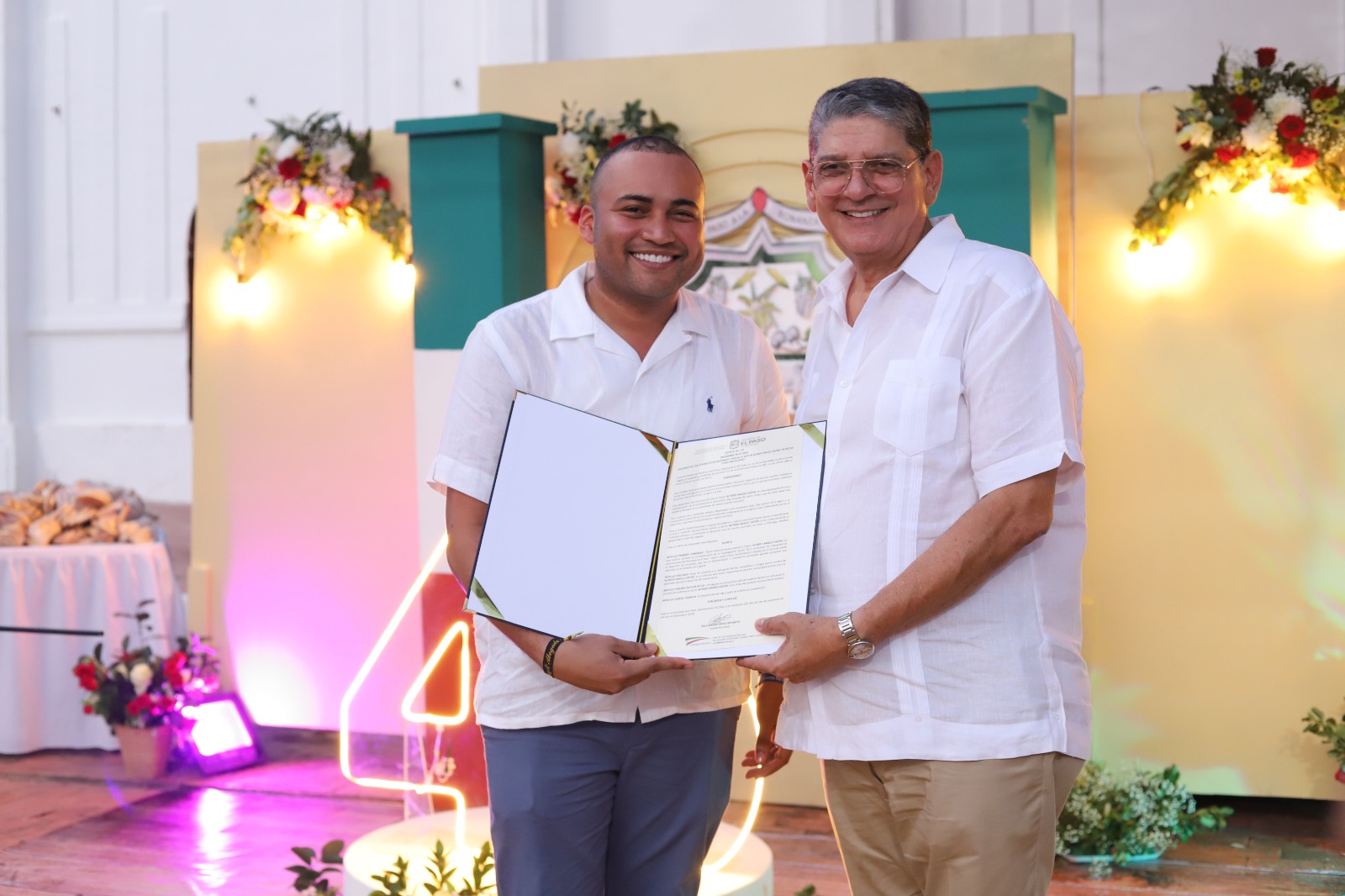Cienaga, April 12, 2019

Out of Drummond Ltd.’s conviction and commitment to strengthening the academic community and ensuring it plays a more relevant role with industry in Colombia, the company participated in a forum organized by Universidad Jorge Tadeo Lozano in Santa Marta, called ‘Econet Marino,’ a first encounter among the users of the goods and services in the Santa Marta coastal zone. The event sought to provide an arena for dialogue between society’s different actors regarding the preservation of the marine ecosystem, highlighting the work done by the university and the research by its marine biology program in connection with the country’s different productive activities.
It highlighted the wealth of the Caribbean Sea and how the people living nearby make use of it, permitting a broad range of activities that generate an impact on the environment.
In addition to presenting different projects led by Universidad Jorge Tadeo Lozano in Santa Marta, as part of its research into marine diversity and into the conservation and preservation of both plants and wildlife, Director Andres Franco moderated a discussion on the region’s environmental problems and their solutions, and the role of different groups in each situation.
Present at the forum were the Coordinator of the Research Program for Marine and Coastal Management – Invemar, Paula Cristina Sierra; the Executive Director of the National Federation of Merchants – Fenalco, Maria Angelica Silva; the representative of the National Authority for Aquaculture and Fishing, Hernando Restrepo; the Inspector Delegate for Environmental Affairs, Jorge Escobar Silebi; and the Environmental Manager from Drummond Ltd. , Amilcar Valencia.
Yes to actions that lead to development, but in a sustainable manner
In each session, panelists responded to the topics under discussion, sharing their perspectives. They concluded that the current challenges are significant and each sector must do its part to continue taking care of the environment. They recognized the region’s vocation, especially the coastal area of Santa Marta.
“Our thinking has been evolving, and we are realizing how amazing the goods and services we have available are, but we have also permitted an entire series of words that have to do with economic activities to practically absorb us, leaving in their wake a spontaneous type of development (…). Lastly, when we talk about comprehensive management of coastal zones we do it for this species, the human species, but without causing detriment to other species and the natural base without which we could not survive,” stated Paula Cristina Sierra from Invemar.
Amilcar Valencia, Environmental Manager at Drummond, highlighted the region’s wealth, the work being done by the academic world, and how important it is to have coherence between the academic world, the practice in each sector and policy: “I agree there has been a lack of planning. There is potential, but, unfortunately, development has always been seen mostly from the point of view of consumerism. The cycle we are experiencing is a cycle most of the world’s cities have already gone through. Looking at those cities can show possibilities for going back and reinforcing environmental variables and services, so that development and the environment can coexist. I believe the disconnect between science, the academic world, and policy in this country is what is causing disorder in our development. There is an imbalance that should make the community think about stopping and rethinking things, about how to begin to organize our development toward ‘well being’ rather than ‘well having,’ and toward a healthy and sustainable way of life.”
The representative from Fenalco emphasized that everyone must participate in solving environmental problems, clarifying that “although the Caribbean region in recent years has experienced economic growth, this has not necessarily meant or led to development. Unfortunately, in the Caribbean region, despite the great wealth in the coastal area we have not been able to guarantee freedoms and a set of basic conditions. Unfortunately, the Regional Development Plan has prioritized certain conditions, but has not taken into account the needs of the communities. There is an increasingly larger gap in opportunities, and in guarantees for the basic conditions for development.”
In general, the panelists were in agreement about the significant environmental challenges facing the different sectors and communities and that have an impact on the coastal zone. “More than 50% of Colombia’s biodiversity is collectively held in title under these cultural visions that run counter to the vision of development led by the State and its economic vision,” expressed the Inspector Delegate for Environmental Affairs, Jorge Escobar, who also spoke about unorganized growth and the possibility of promoting greater awareness about consumerism in the communities.
Drummond is grateful for the invitation from Universidad Jorge Tadeo Lozano to learn about the perspective of private enterprise, and that of other participants, on a matter of utmost importance to everyone.








